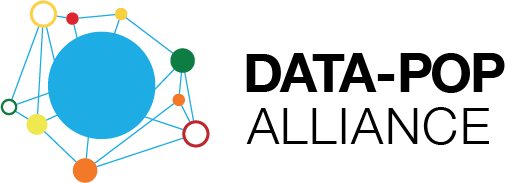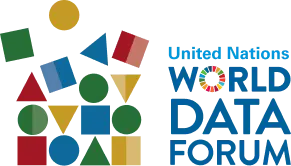
OPAL for Humanitarian Action (OPAL4HA)
Data-Pop Alliance
Civil Society
World Food Programme, Patrick J. McGovern, Bureau Opérationnel du Suivi (BOS) within the Presidency of Senegal, IPAR, Sonatel, and ANSD (Senegalese National Statistics Office)
National
OPAL4HA’s mission is to lessen the impact of floods by bolstering both anticipatory action and disaster response efforts with powerful data and insights. Our innovative platform leverages both traditional and non-traditional data to enable predictive analytics and generate indicators that anticipate human displacement caused by climate shocks, allowing decision-makers to take timely action. Beginning with a pilot in Senegal, the platform will continuously refine its services through a collaborative approach that includes user feedback and network growth, ultimately contributing to more effective and proactive climate disaster management and maximizing the use and value of data to respond to these disasters. Our broader goal is to centralize diverse and complex types of data and translate them into actionable insights that support data-driven policy making. This enables decision-makers to respond more effectively and target assistance to those in need, ultimately unlocking the full potential of data for public policy.
The humanitarian sector faces a significant challenge due to the lack of accurate and timely data on increasingly frequent environmental hazards, which hampers decision-makers' ability to develop informed strategies and policies that effectively address the needs of affected communities. Through our OPAL4HA platform, we aim to solve this problem by providing sufficient, reliable data that empowers decision-makers to implement targeted interventions and assist vulnerable populations effectively before, during, and after climate-related disasters. OPAL4HA was designed to address the critical data gap in preparing for and responding to climate-induced disasters and mobility challenges, and will empower decision-makers with critical data insights to anticipate and respond effectively to climate-induced shocks, bolstering Senegal’s climate resilience. By analyzing a diverse range of data sources, from satellite images and high-resolution geospatial information to GDELT data, our AI model will offer accurate insights in seconds to improve decision-making in the face of climate-induced disasters.
OPAL4HA is centered on a platform that unites diverse forms of data to provide insights and indicators that enhance decision-making for development and humanitarian actors. Our team achieves this through three primary workstreams: Enhancing data access, providing insights and analysis, and facilitating information access. OPAL4HA reduces the time required to collect relevant data by making different forms of data accessible and interoperable, including user data, in a privacy preserving manner. We also help respondents plan better and faster by providing systematic analysis of data to support faster decision-making, powered by the use of AI and LLMs. Finally, OPAL4HA helps people access information faster by facilitating quick information sharing between respondents, including two way communications with the general public.
The development of the OPAL4HA platform is currently in progress, with our team focused on refining the features and structure to best reflect user needs in the pilot launch in Senegal. Initial results have shown OPAL4HA's potential to protect over 200,000 Senegalese affected by floods annually. The platform is scheduled for launch by the end of 2024, with the primary goal of adoption by decision-makers to generate reports and communication strategies for Senegal’s rainy season (June-September) to improve flood preparedness and communication with local populations. DPA already has partnerships in place with key local governmental actors to facilitate this adoption. Additionally, our team will validate findings generated by the platform with local communities and eventually involve them in contributing with relevant local data, enhancing the platform's effectiveness in addressing flood preparedness and response. Our long-term strategy and vision for this commitment is to create a platform adaptable to different themes, contexts, and challenges, bringing data to action in both humanitarian and development sectors with a community and human centered approach.
As a technology designed to serve humanitarian actors, OPAL4HA measures success through the use and application of data and artificial intelligence to address flooding, beginning in Senegal. Over the next year, our team will follow an internal development roadmap, with the ultimate ambition of launching a MVP by May 2025. Effective incorporation of data such as satellite images, high-resolution geospatial information, GDELT data, among others, will be markers of success, as well as the proper functioning of the various features, generating actionable insights, and producing relevant reports. This will include internal self-evaluation within our team to track the platform's development and ensure it aligns with our objectives.
In terms of evaluation, we will focus on the granularity and accuracy of the information generated, measuring how useful it is for decision-makers in responding to climate-induced disasters. User feedback will play a critical role in refining the platform, and we plan to conduct periodic reporting within our network to keep stakeholders informed of our progress. Additionally, we are going to present OPAL4HA concept and pilot at the next UN World Data Forum in Medellín.
